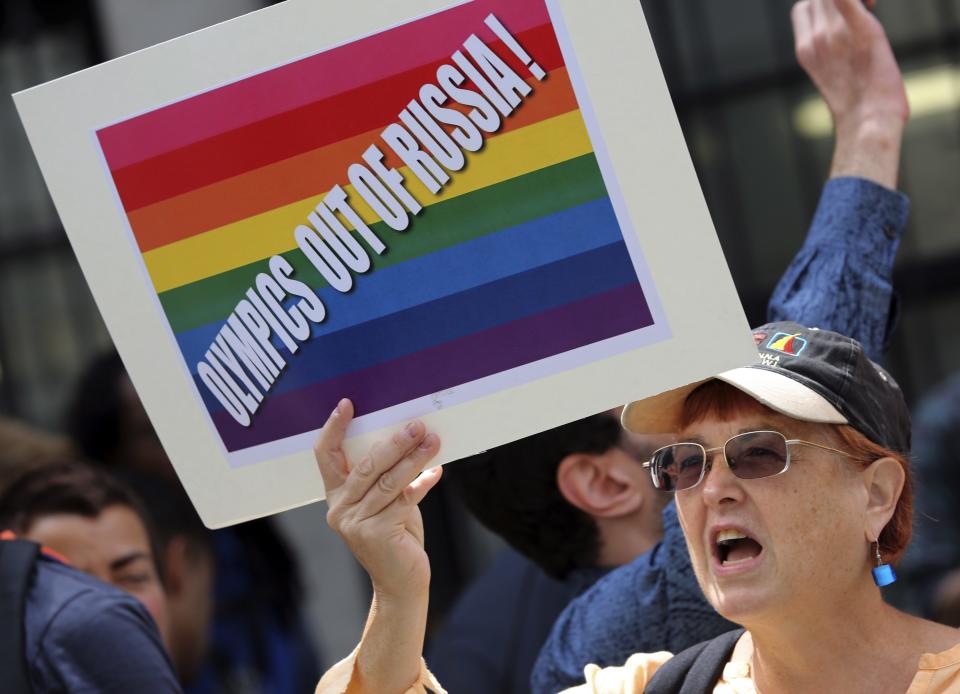Russia’s anti-gay laws and Sochi 2014 latest example of Olympics ignoring human rights
So apparently holding the next winter Olympics in a place known more for its palm trees than its snow cover isn't the only hurdle that needs to be cleared next February in Sochi, Russia.
Adding to the alleged corruption (imagine corruption at the Olympics!) and gross cost overruns (say it isn't so!) there's the thorny matter of Russia's new anti-gay laws.
As if the very passing of such discriminatory legislation wasn't enough, Russian sports minister Vitaly Mutko assured all on Thursday that Olympic athletes and tourists won't be exempt from them.
"An athlete of nontraditional sexual orientation isn't banned from coming to Sochi," Mutko told the Russian state news agency RIA Novosti in a clumsy attempt to mollify the situation. "But if he goes out into the streets and starts to propagandize, then of course he will be held accountable."
Just what "propagandize" means isn't clear, but under president Vladimir Putin Russia hasn't exactly been one of the more tolerant nations on the planet. For all we know, carrying a man-purse or wearing sensible heels might be cause for incarceration.
This situation has led many to call for a boycott of the Games.
But Canadian chef de mission, Mark Tewksbury, spoke out against that in an interview with CBC on Thursday. Tewksbury, a former Olympic swimmer and openly gay, said a boycott would only serve to punish the athletes by depriving them of competing at the Games.
But there's another reason why a boycott should be avoided: Olympian hypocrisy.
If you're going to boycott the Games over discrimination against gays, how do you explain not boycotting those Olympics that booted out the homeless so they could present a prettier face to the world? That might have resulted in boycotts of Atlanta, Beijing and -- yes -- Vancouver.
Why not boycott Games staged in countries that openly abuse human rights? We're talking about you, China.
The International Olympic Committee has a long history of ignoring these types of issues. Remember the 1936 Berlin Olympics?
If nothing else, Sochi might be yet another wake-up call for the IOC to watch where it stages its biggest event. But based on the IOC's response to the legislation, basically saying that Russian authorities have assured all that athletes will not be persecuted, it will once again hit the snooze button on that wake-up call.

 Yahoo Sports
Yahoo Sports 


